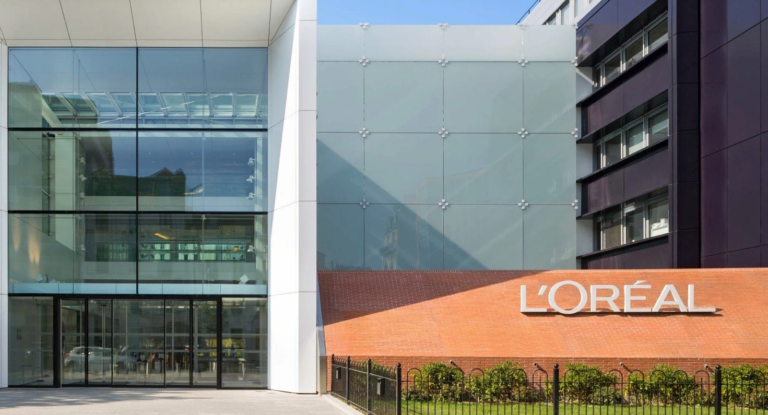Great companies are always looking to leverage the latest technology to transform themselves. For decades, loreal group is a leader in the beauty industry and is now using AI to disrupt the industry.
With 37 global brands, the company uses innovative marketing and cutting-edge technology to meet the needs of modern consumers. L'Oréal is embracing generative artificial intelligence to transform the way it engages with customers.
Through partnerships with technology companies such as Nvidia Inc. Experimenting with over 800 AI-generated beauty images, L'Oréal is exploring new beauty paradigms. The company envisions a future where mirrors are digitally connected, beauty products are driven by innovation, and salons are run by robots. This AI-powered vision was outlined at a recent event. Nvidia GTC 2024 SessionAsmita Dubey, chief digital and marketing officer at L'Oréal, shared insights on how generative AI is being used to enhance marketing in the beauty space.
Dubey said L'Oréal is focusing on three key areas as it integrates generative AI into its operations: science, technology and creativity. This includes his Generative AI Task Force and his GenAI Content Lab at the company. This task force will be responsible for a framework that outlines guardrails and do's and don'ts for generative AI. At the same time, the Content Lab will also serve as an innovation hub to “ignite creativity” through technology.
More specifically, the Generative AI Task Force identifies potential applications and use cases for the technology within an organization. It is also tasked with upskilling its workforce to ensure that they have the knowledge and skills needed to effectively leverage AI. Finally, we will foster a community within L'Oréal that will spread knowledge about AI throughout the organization.
GenAI Content Lab is a creative experimentation space for creating beauty content. Foster collaboration through a network of partners and explore service models for AI-powered creativity. GenAI Content Lab has also established guidelines and ethical standards for using AI. For example, L'Oréal does not use AI-generated images of faces, skin, body, or hair to falsely market its products. Instead, the company uses his AI for brainstorming, designing, and planning internally.
L’Oréal creates relevant and engaging marketing content by experimenting with generative AI. This technology has proven to be effective in scaling product shots and background production, significantly reducing the resources required for traditional photography. In addition to still images, L'Oréal is also considering video generation to enhance its visual marketing.
What L'Oreal uses Nvidia's Omniverse Use the platform to create detailed 3D models of your products that can be placed in a variety of situations and settings. The advantage is twofold. It significantly reduces the time and resources traditionally spent on photography, while giving you the flexibility to showcase your products on different media platforms.
Omniverse allows you to easily adapt your images to suit your situation and make them more suitable for social media and e-commerce. For L'Oréal, this was a game-changer in the fast-paced world of beauty marketing, Dubey said.
“We believe technology can push the boundaries of what's possible,” Dubey said. “We provide advanced beauty services to consumers because we can meet an infinite variety of beauty needs. 70% of consumers are overwhelmed by the number of beauty options available.” That's why we offer beauty services to help you overcome this problem.”
One of these services is Beauty Genius, a virtual beauty advisor that helps consumers choose beauty products. Built using AI and augmented reality technology. modi faceBeauty Genius, a company acquired by L'Oréal in 2018, provides personalized skin analysis and allows users to virtually “try on” makeup. He also provides customized product recommendations, choosing from his 750+ options in skin care, makeup, and hair care. Finally, Beauty Genius is an educational resource that provides beauty advice and tips to consumers by curating content from the L'Oréal brand's website and social media.
L'Oréal is adapting to changes in content creation by partnering with more than 50,000 influencers and creators who are experts in AI, AR, virtual reality and 3D modeling. These partnerships are global, with a strong presence in markets such as China. These cover popular platforms such as Meta Platforms Inc.'s Facebook, Instagram, TikTok, and Snapchat, reaching a wide range of consumers.
Going forward, L'Oréal will focus on three areas: improving technology responsiveness, ensuring AI adaptability and modularity, and effectively managing brand data. The goal is to combine human creativity and AI to personalize beauty through technology. Dubey said this demonstrates L'Oréal's commitment to leveraging emerging technologies to lead the beauty sector and provide personalized beauty services to consumers.
One of GTC's themes is that AI will change every aspect of our lives, and the show provided many use cases in healthcare, smart cities, and scientific discovery. I liked L'Oreal's presentation. Because we're showing how GenAI can be easily used by the masses to transform the way consumers interact with the brands they love and use every day.
Photo: L'Oreal
Your upvote is important to us and helps us keep our content free.
Your one click below will support our mission of providing free, deep and relevant content.
Join our community on YouTube
A community of over 15,000 #CubeAlumni experts, including Amazon.com CEO Andy Jassy, Dell Technologies Founder and CEO Michael Dell, Intel CEO Pat Gelsinger, and many other celebrities and experts. Please join us.
thank you


